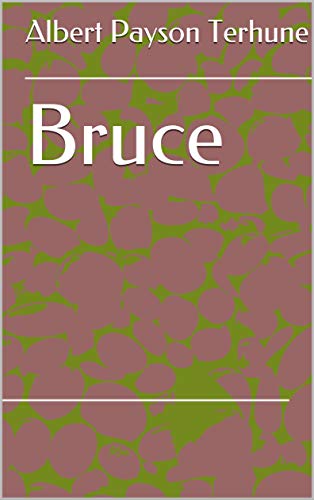CHAPTER VI BRUCE
byChapter VI introduces a turning point in Bruce’s story, as he moves from a tranquil home life to the chaos of war. The collie, known for his intelligence and steady loyalty, is deployed to serve as a messenger on the Western Front. This change marks the beginning of a journey shaped by danger, service, and an unwavering sense of duty. Though Bruce is far from The Place and those he loves, his determination never falters. Life at the front is hard for animals, with bullets, disease, and exhaustion always close. Still, Bruce quickly proves invaluable to the “Here-We-Comes” regiment, delivering messages across deadly terrain. His reputation grows, not just for reliability, but for his uncanny sense of danger. His story captures a unique blend of heroism and tragedy, reflecting the silent, tireless roles that war animals have played throughout history. Few soldiers, human or canine, endure what Bruce does—and survive.
When the battalion finds itself near Chateau-Thierry, the narrative sharpens into urgency and suspense. Though the front had been quiet, a sudden German push tests the regiment’s cohesion and alertness. A communication gap emerges in the line, caused by an overconfident advance—a fatal mistake if exploited. In the darkness, Bruce patrols alone, his instincts warning him of something unseen. When he discovers a fallen American guard and the German intruder responsible, Bruce reacts swiftly. But instead of praise, he is mistaken for something sinister. Corporal Freund, overcome by fear and superstition, fires on Bruce, believing him to be an apparition, a beast from nightmares. This moment becomes the emotional fulcrum of the chapter, where loyalty and confusion collide, underscoring the irrational terror that war often breeds. Through this misunderstanding, the chapter underscores the blurred line between reason and fear on the battlefield.
Bruce’s injuries nearly end his life, yet even in pain, he accomplishes his mission. His attack alerts nearby soldiers, forcing them into action before the enemy can exploit their disorganized front. Without his interference, a silent incursion might have ended in chaos and loss. This act of selflessness elevates Bruce beyond the role of a mere service animal—he becomes a fellow soldier in the eyes of his comrades. When the danger passes, those around him mourn as they would a man, unsure if he’ll survive the night. Yet, fortune favors the brave. Bruce clings to life, pulled back from the brink not by medicine alone, but by the same spirit that made him a hero. The scene where soldiers stand over him with reverence speaks volumes of how respect and recognition transcend species.
Back at The Place, Bruce’s return is nothing short of a homecoming marked by solemn gratitude and quiet healing. His war wounds are real—visible in his stride and the gray in his coat—but his presence restores a sense of peace. The master’s gesture of awarding Bruce a medal is more than ceremonial. It is an acknowledgment that courage wears many faces, and that sacrifice comes in both human and animal form. Bruce no longer races across peaceful fields in youthful exuberance. Instead, he walks with dignity, carrying with him the silent echoes of conflict and survival. His journey closes with the sense that while war altered him, it could not diminish him. His example lingers long after the page is turned, a quiet reminder of what love and loyalty can endure.
From a broader perspective, Bruce’s experience echoes the often-overlooked history of animals in warfare. During World War I, thousands of dogs served in roles that went far beyond companionship. They delivered messages, found wounded soldiers, and warned of enemy advances, often at great personal risk. Bruce’s story, though fictional, reflects real accounts of canine valor that shaped battlefield outcomes. In highlighting his path from domesticity to battlefield and back, Chapter VI honors not only his courage but that of all silent warriors who walked beside men through fire and blood. Such stories offer readers more than entertainment—they offer perspective, history, and above all, heart.

